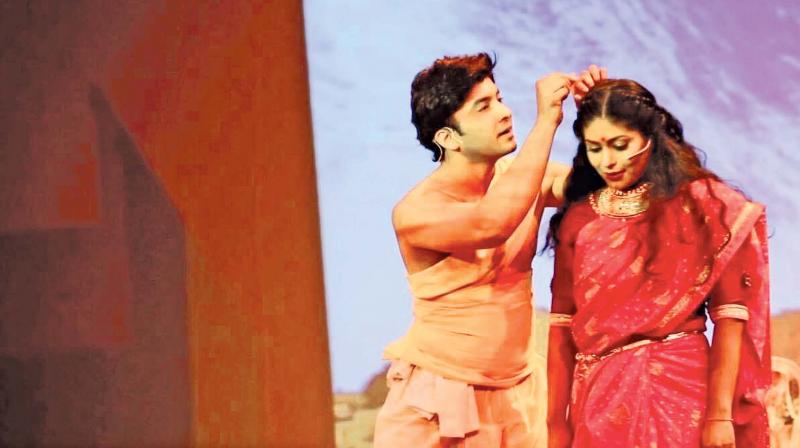A play that’s all about women power
Chitra and Chaitali have a lot in common, yet are alter-egos of each other and each one wishes she could be like the other.

Many contemporary plays are based on inimitable oeuvres of the great bard Rabindranath Tagore. Isheeta Ganguly, playwright-director and an avid Rabindranath Tagore enthusiast delves into the story of Chitra, a one-act play written by Tagore which adapts part of the story from the Mahabharata and centres around the character of Chitrangada. Through a unique blend of parallel narrative, the director unfolds her play Sundays with Chitra and Chaitali, which redefines to empower feminism, which cannot be subverted through coercion and deceit.
The play narrates the story of Chitrangada on one hand and modern day Chitra and Chaitali on the other and they meet over coffee on Sundays at a café and their playful repartee transforms into a critical conversation. The eponymous character Chitrangada has been depicted from the story of Mahabharata, a female warrior who adores Arjuna. Being masculine in nature, she is unable to attract the attention of Arjuna and then takes refuge in Madana, the god of love who blesses her with a divine beauty and Arjuna gets hallucinated with her charm and pledges to break this vows of chastity which bothers her as he is not falling for her true self.
Chitra and Chaitali have a lot in common, yet are alter-egos of each other and each one wishes she could be like the other. Over coffee, their conversation shifts from life and work to their relationship with men. Chitra is an air hostess, masculine in nature and more assertive while Chaitali is a fashion designer and feminine. Towards the end, there is a twist in plot with entry of mystery man who coyly plays with the emotions of both the women, which leaves them outraged.
Actress Smitaa Chakraborty who played the role of Chitrangada impresses the audience with her fine repertoire and subtle performance. In a candid conversation she avers, “Chitrangada is the sole consciousness of Chitra and Chaitali. We are the villain of ourselves. We have the right to decide our own actions and need not be liable to men. Men should not govern what we have to wear and what we have to do”.
Apart from Sundays with Chitra and Chaitali, Isheeta Ganguly has two other plays to her credit, Three Women and Shakuntala Awaits. She is also a fusion singer trained in Hindustani classical music. One more interesting aspect of the play is that Bollywood composer Pritam Chakraborty makes his foray into theatre music with this play and has arranged suitable music synonymous with Tagore’s melody. The play made its premiere in Chennai and was recently hosted in Bengaluru.

